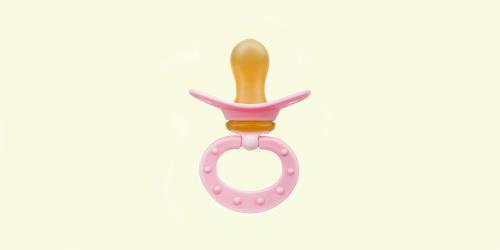Dirty time for the pill? A Danish study published in November 2016 in the journal JAMA psychiatry * demonstrates that taking hormonal contraception can sometimes promote the onset of depression .
Before reaching this conclusion, researchers at the Faculty of Medicine at the University of Copenhagen looked at data from the medical records of more than one million Danish women aged 15 to 34, of whom just over half were hormonal contraception - pill, implant, IUD , vaginal ring.
A higher cause-and-effect relationship among teenage girls
Danish researchers have found that women who take this type of contraceptive are more likely to use antidepressants and are more likely to be diagnosed with a severe depression. They also found that this cause-and-effect relationship was higher among teenagers, and more marked with progestin-only pills.
Should we throw our pills, implants and sterilets in the trash? The answers of Dr. Guillaume Fond, psychiatrist and research professor at Inserm, who studies the links between immuno-inflammation, hormones, and mental health.
MC: When reading the results of this large-scale study, many women may be tempted to give up their pill for fear of depression. What do you advise them?
Dr. Guillaume Fond: This very rigorous study should not lead to demonization of hormonal contraception. Researchers at the University of Copenhagen have certainly shown an increased risk of severe depression in women who take this type of contraception, but that does not mean that all women on hormonal contraceptives will have a depression! We must reassure those who take the pill for 5, 10, 15 years, and who are well: they have no reason to change contraception.
Vigilance is appropriate for adolescent girls, and for women who have had depressive episodes in the past.
Young girls who start taking hormonal contraception should be informed by their doctor of the existence of this type of possible side effect. The same applies to women who have experienced an episode of severe depression, or who have genetic predispositions to this mental illness, with a family member who suffers or has suffered from it.
All must be alert to the possible fluctuation of their mood in the first months of taking a contraceptive pill. The Danish study has shown that the negative effects on mood can be felt from 2 months of regular intake of hormonal contraception, with a peak at 6 months.
Regardless of these two situations, what if we have the feeling that taking a new hormonal contraception coincides with a decline in morale?
Talk to your doctor, who may start with a lower-progesterone pill, or some other type of non-hormonal contraception.
The effects of hormones on the brain have been downplayed for a long time.
It is important that this Danish study is publicized, to make doctors, gynecologists and psychiatrists aware of this possible influence of hormonal contraception on mood.
The pill: a regulator of hormones beneficial to the mood of some women
Can this possible side effect of hormonal contraception explain the difficulties of women who sometimes struggle for years against depression, and for whom antidepressants are ineffective?
Yes, it is a component that must be explored by the general practitioner, the gynecologist and / or the psychiatrist.
Taking hormonal contraception alongside antidepressants can sometimes be totally counterproductive.
Combining the two amounts to simultaneously pressing the brake and the mood accelerator.
It is therefore essential that psychiatrists inquire about the type of contraceptive used when dealing with patients who do not respond to medication for depression.
Remains a paradox: many women who, under hormonal contraception, say they feel better in their skin, less exposed to mood swings related to premenstrual syndrome. How to explain it?
Hormonal contraception has the effect of regulating the release of hormones in the body. To suppress ovulation, it removes the hormonal "spike" that triggers it. Hence, for some women, a positive effect on mood, more stable hormonal contraception.
That is why, I repeat, women who take this type of long-standing contraception and who have no signs of depression should not stop taking it anyway.
* jamanetwork.com/journals/jamapsychiatry/article-abstract/2552796




